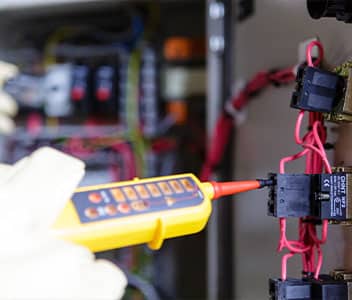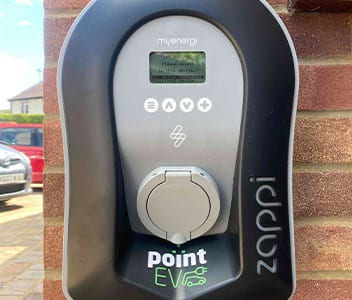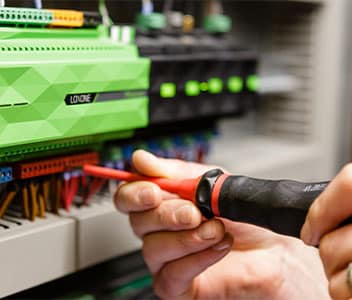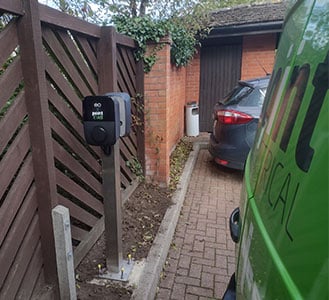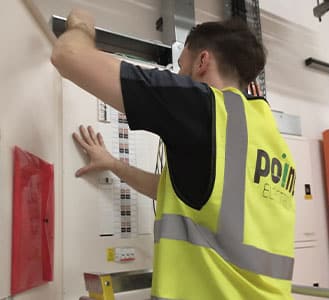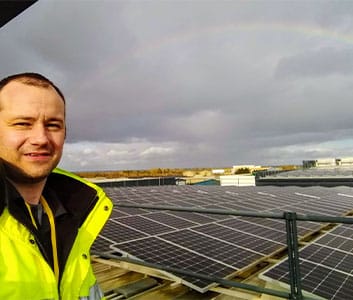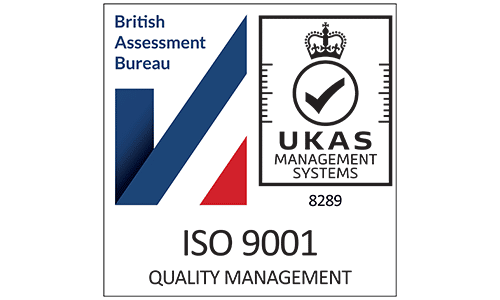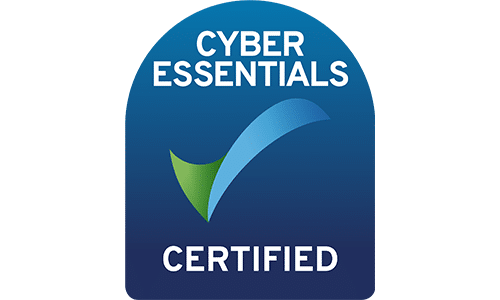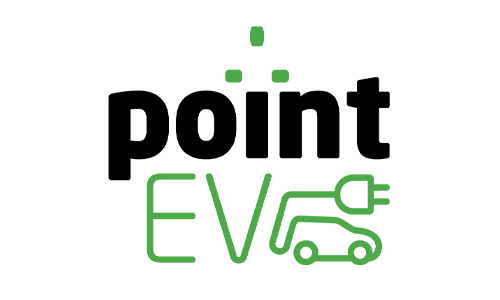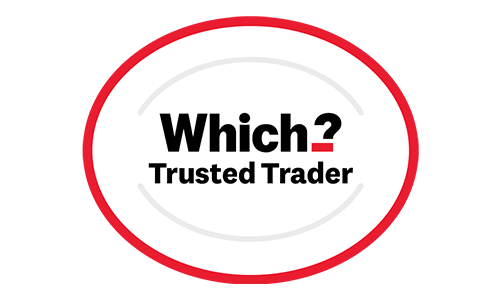How do solar panels work?
When a solar panel captures the rays of the sun, it converts that light energy into electrical charges in a process known as the photovoltaic effect.
This phenomenon is a result of the unique properties of photovoltaic (PV) cells within the panel, which are designed to absorb and convert light energy into electrical charges.
These charges can then be directed along an internal electrical field within the cell to generate electricity.
Do solar panels work in winter?
One of the biggest misconceptions about solar panels is that they don’t work during the winter season due to reduced sunlight exposure.
However, this couldn’t be further from the truth. While it is true that the daylight hours are shorter during the winter months, solar panels continue to generate power as long as they receive sunlight. Moreover, solar panels work better in colder temperatures than in hot temperatures.
This is because solar panels work by converting light into electricity, and lower temperatures mean that the wires within the panels can efficiently carry electric currents.
Do solar panels work in the rain?
Solar panels are indeed capable of generating electricity even on rainy days. While a brighter, sunnier day will undoubtedly result in more energy production, solar panels are still able to convert some of the sun’s energy into usable electricity through diffuse light.
In fact, some studies have shown that solar panels might even be more efficient in certain rainy climates, where lower temperatures help the panels perform more optimally.
Can you run a house on solar power alone?
Solar panels are most effective when they receive direct sunlight, so the UK’s famously grey weather can make it challenging.
However, battery storage technology has come a long way, and homeowners can now store excess energy generated during sunny periods and use it during times when the panels are not receiving direct sunlight.
With the right equipment and strategy, it is entirely possible to run a house on solar power alone.
How many solar panels are needed to power a typical house?
The amount of solar panels needed to power a typical house depends on a variety of factors, including the size of the house, how much energy is typically consumed, and the amount of sunlight the panels can receive during the day.
To determine the appropriate number of panels needed, an assessment of energy usage and a property evaluation must first be carried out.
Following this analysis, calculations can be made to determine the ideal number of panels needed to generate enough electricity to power the entire house.
How long do solar panels last?
It’s important to know that solar panels are built to last a long time – typically around 25 years or more. However, the longevity of your solar panels will depend on a variety of factors, including the quality of the panels themselves and the regularity of maintenance.
That said, it’s worth noting that many solar manufacturers offer warranties ranging from 25 to 30 years, giving users peace of mind that their panels will continue to function optimally for many years to come.
Do I need planning permission?
If you are considering installing solar panels on your property, you may be wondering if planning permission is required. The good news is that, in many cases, planning permission is not necessary.
The government has introduced Permitted Development Rights, which means that you can install solar panels on your property, as long as they meet certain requirements.
These include that the panels must not protrude more than 200mm from the roof surface, and should not be installed on a listed building or within a conservation area.
How long does solar panel installation take?
This will vary depending on a handful of factors, ranging from the size of your system to the complexity of your installation. In general, however, most installations take anywhere from one day to one week to complete.
The first step in the process is to schedule a consultation with a qualified solar installer like Point Electrical, who will be able to provide you with a more precise estimate for your specific project.
How much do they cost?
The size of your home determines the number of solar panels you need, which greatly impacts the total cost. The price can vary depending on a number of factors including the size, type, and quality of the panels that are chosen.
For a more detailed solar panel price breakdown, do not hesitate to get in touch with us.
Do I need bird protection?
Birds can cause damage to solar panels which can result in costly repairs. Not only that, but their droppings can also reduce the efficiency of your solar panels.
To protect your investment, bird protection for solar panels is recommended. Different options are available, such as bird netting, anti-roosting spikes, or mesh screening.
How can I make the system less visible?
One of the most effective approaches is to integrate the system into your roof by installing solar panels that blend in with the colour and texture of your roofing material.
Another option is to mount the solar panels on a flat or low-slope roof, which helps to minimise their profile from street level.
Will I need to change my electricity meter?
No, solar panels will work on any existing meter. To take advantage of some of the newer tariffs available for self-generators a Smart Meter would be required.
Contact Us Today
If you would like more information on solar panel installations or to book a consultation for your premises please contact us today.
